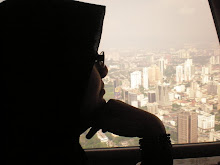 4. The strict terms and condition in war
4. The strict terms and condition in warAbu Bakr had advised Yazid: "I advise you ten things: Do not kill women or children or an aged, infirm person. Do not cut down fruit-bearing trees. Do not destroy an inhabited place. Do not slaughter sheep or camel except for food. Do not burn bees and do not scatter them. Do not steal from the booty, and do not be cowardly." (Mutta Malik, Book 21, Section 3, Number 10)
Safi-ur-Rahman Al-Mabarakfuri sums it up in "Ar-Raheeq Al-Makhtoum",
The Messenger of Allâh [pbuh] had issued honourable strict rules about war and instructed his soldiers and leaders to comply with them. They were forbidden to break those rules under any circumstances.
The Messenger of Allâh [pbuh] had issued honourable strict rules about war and instructed his soldiers and leaders to comply with them. They were forbidden to break those rules under any circumstances.
In Sulaiman bin Buraidah’s version, he said that his father had told him that whenever the Messenger of Allâh [pbuh] appointed a leader on an army or on a battalion, he used to command him to fear Allâh, the Great and All-Mighty, when dealing with those who were closest to him and to be good with all Muslims. Then the Prophet [pbuh] would say to him:
"Let your invasion be in the Name of Allâh and for His sake. Fight those who disbelieve in Allâh. Invade but do not exaggerate nor commit treachery. Never deform the corpse of a dead person or kill an infant child."
"Let your invasion be in the Name of Allâh and for His sake. Fight those who disbelieve in Allâh. Invade but do not exaggerate nor commit treachery. Never deform the corpse of a dead person or kill an infant child."
The Messenger of Allâh [pbuh] asked people to facilitate but he forbade them to bear down hard on others or constrain. "Pacify", he said, "and do not disincline".
When it happened that he arrived at the battlefield by night, he would never invade the enemy till it was morning. He utterly forbade burning (i.e. torturing people) in fire, killing children and women or even beating them. He also forbade theft and robbery and proceeded so far as to say gains acquired through plundering are not less forbidden than the flesh of a corpse. Corruption of tillage and race and cutting down of trees were all forbidden unless they were badly needed and there was no other substitute:
"Do not kill a wounded person nor run after a fleeing one or kill a captive."
"Do not kill a wounded person nor run after a fleeing one or kill a captive."
He decreed that envoys cannot be killed. He also stressed on to not killing those who made covenants. He even said:
"He whoever kills one who is under pledge to a covenant shall not smell Paradise, though its smell could be experienced at a forty-year distance from it."
"He whoever kills one who is under pledge to a covenant shall not smell Paradise, though its smell could be experienced at a forty-year distance from it."
There were some other noble rules which purified wars from their Al-Jahiliyah (pre-Islamic) filthiness and turned them into sacred wars. [Za'd Al-Ma'ad 2/64-68; and for details Jihad in Islam p.216-262]
>>Can anybody show me any other war policies like this?
5. Some issues
a) Sometimes force has to be used to maintain peace.
Each and every human being in this world is not in favour of maintaining peace and harmony. There are many, who would disrupt it for their own vested interests. Sometimes force has to be used to maintain peace. It is precisely for this reason that we have the police who use force against criminals and anti-social elements to maintain peace in the country. Islam promotes peace. At the same time, Islam exhorts it followers to fight where there is oppression. The fight against oppression may, at times, require the use of force. In Islam force can only be used to promote peace and justice.
Each and every human being in this world is not in favour of maintaining peace and harmony. There are many, who would disrupt it for their own vested interests. Sometimes force has to be used to maintain peace. It is precisely for this reason that we have the police who use force against criminals and anti-social elements to maintain peace in the country. Islam promotes peace. At the same time, Islam exhorts it followers to fight where there is oppression. The fight against oppression may, at times, require the use of force. In Islam force can only be used to promote peace and justice.
b) Implementation of law is not a criminal
We never call police as assassin. Even the executer, we don’t call them assassin. They merely perform their job, as to maintain peace and harmony, and in fact, they only kill those who are permissible (by the law) to be killed. Is it this simple?
We never call police as assassin. Even the executer, we don’t call them assassin. They merely perform their job, as to maintain peace and harmony, and in fact, they only kill those who are permissible (by the law) to be killed. Is it this simple?
No. In law, it is not easy to accuse and execute people. They must be supported by clear evidence and witnesses to proof that they are guilty. They must be supported by strong reasons.
If we can accept the rules of law, why couldn’t we accept that Muhammad was merely executed as what accordance with the law at that time, as to maintain peace and harmony?
If we can accept the rules of law, why couldn’t we accept that Muhammad was merely executed as what accordance with the law at that time, as to maintain peace and harmony?
c) During the opening of Makkah (the conquest of Makkah)
During the conquest of Makkah, Prophet Muhammad had instructed his Commanders to not cause any harm when they entered Makkah, except to fight those who resisted them. Well, it supposed to be a good opportunity to kill majority of the non-believers in Makkah!
d) Some argument about the law and the leader?
Muhammad was the leader of the Muslims at that time. He had power over Medina and few other places under his authority. In Medina itself, there were non-muslims and non-believers. However, Prophet Muhammad wasn’t kill each all of them until there were non-muslims and non-believers left. Instead, he gave sanctuary to the non-muslims under the Islamic laws.
Ok ow… I couldn’t find any authentic information that support the allegation towards Prophet Muhammad… Sorry =)
During the conquest of Makkah, Prophet Muhammad had instructed his Commanders to not cause any harm when they entered Makkah, except to fight those who resisted them. Well, it supposed to be a good opportunity to kill majority of the non-believers in Makkah!
d) Some argument about the law and the leader?
Muhammad was the leader of the Muslims at that time. He had power over Medina and few other places under his authority. In Medina itself, there were non-muslims and non-believers. However, Prophet Muhammad wasn’t kill each all of them until there were non-muslims and non-believers left. Instead, he gave sanctuary to the non-muslims under the Islamic laws.
Ok ow… I couldn’t find any authentic information that support the allegation towards Prophet Muhammad… Sorry =)
xiet_enigma





No comments:
Post a Comment